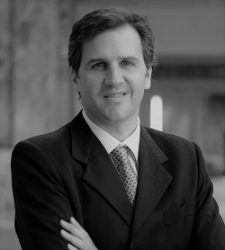Educacion
Open call for applications: EdTech Winter School – Human Centered Technologies for Education @fundacionceibal
Author: Juan José Calderón Amador
Go to Source
Hoy traemos a este espacio de la Fundación Ceibal su
Open call for applications: EdTech Winter School – Human Centered Technologies for Education
APPLICATIONS FOR THE EDTECH WINTER SCHOOL ARE NOW OPEN
3rd – 7th June 2019
Center for Research – Ceibal Foundation
ANII
IDRC
SUMMARY
Ceibal Foundation is organizing the 3rd edition of the EdTech Winter School in partnership with ANII (Agencia Nacional de Investigación e Innovación) and with the support of the International Development Research Centre -IDRC-. The EdTech Winter School is a multi-stakeholder initiative organized within the framework of the Education Sector Fund “Digital Inclusion: Education with New Horizons” created with ANII and ADELA (Alliance for the Digitalization of Education in Latin America) supported by the International Development Research Centre (IDRC).
In this context and for the past three years, the Winter School focused in creating a stimulating learning environment to present and discuss key challenges, research trends and opportunities; to foresee new horizons in education, learning and teaching practices enhanced by digital technologies.
This year’s edition “Human Centered Technologies for Education” aims to assess, analyze and explore the changes, opportunities and challenges that technology-driven transformations are creating for education worldwide. Advances in areas as automation, artificial intelligence, robotics, Big Data, among others, are shaping society in ways that could not be foreseen a few years ago.
The integration of digital technologies in education has rapidly expanded around the world; both by promoting access to devices and connectivity, as well as through the expansion of digital contents, massive open courses and e-learning platforms. While education is still being influenced by digital technologies in a moderate way, several changes have unfolded. Knowledge and skills, learning and schooling have gone through a complex process of redefinition. Alternative and non-formal education opportunities enabled by digital technologies have emerged, offering a pathway towards addressing current educational challenges, in particular bridging the current divide between schooling, learning and employability. Furthermore, technology has allowed to improve the delivery of personalized education services; to foster innovation across teaching and learning methodologies; to determine potential areas of improvement, and finally, to better address structural bottlenecks in learning and teaching processes.
These increasing opportunities come with more complex and multidimensional challenges. Firstly, the increasing number of available online services, platforms and content, has also increased the quantity of data that individuals, companies and organizations produce online about themselves. While e-learning services and platforms continue to expand, so does the quantity of personal data collected and the ways in which the latter is processed and used. Online contents and e-learning platforms were the first step that enabled the use of Big Data, facial recognition and artificial intelligence in the field of education. Moreover, advances in machine learning and analytics, have increased the ways and the potential to process large amounts of data in real time, in some cases without the user’s knowledge, for different purposes than the ones that originally justified the collection, or with objectives that may be legal but are questionable from an ethics point of view.
These challenges need to be put at the center of discussions, research and policy-making in order to leverage the opportunities that technology-driven transformations create, without undermining individuals’ autonomy, self-determination and decision. Within this framework, the third edition of the EdTech Winter School will focus on these critical issues for putting educational technology at the service of individuals.
OBJECTIVES
The Winter School will offer an exciting opportunity for postgraduate students and early career academics, researchers and policy-makers to present and discuss relevant EdTech policies and research for studying the challenges emerging in the field of education and technology, innovation and inclusion.
SPECIFIC OBJECTIVES
- To create a stimulating environment for discussion and analysis involving keynote speakers, along with early-career scholars, students, researchers and policy-makers. This will be an opportunity for learning about novel research methodologies and scientific perspectives enabling capacity-building and knowledge transfer in areas of common interest.
- To present and exchange national and international research-based case studies in the following research lines: Social uses of ICT and digital culture; Resources and Platforms; New Ways of Knowing, Learning, Teaching and Evaluate; Extended Learning Achievements; Educators in the Digital Age.
- To create a long-term international network in education and technology (EdTech) based on multidisciplinary studies with different methodological perspectives. The academic network aims to promote capacity building in the fields of EdTech, innovation and inclusion. This community will be also of great value for promoting and implementing international research projects, seminars and initiatives in the field.
Additionally, Winter School participants’ will be invited to:
a) Collaborate in a special publication that will be prepared, where attendees will disseminate the results of their studies;
b) Present research projects to the Education Sector Fund: Digital Inclusion Education with New Horizons 2019, created by the organizing institutions.
(c) Explore future collaborations in areas of common interest;
(d) Become a Ceibal Foundation’s affiliate and participate in collective books publications, dissemination of academic work, activities and scientific initiatives.
a) Collaborate in a special publication that will be prepared, where attendees will disseminate the results of their studies;
b) Present research projects to the Education Sector Fund: Digital Inclusion Education with New Horizons 2019, created by the organizing institutions.
(c) Explore future collaborations in areas of common interest;
(d) Become a Ceibal Foundation’s affiliate and participate in collective books publications, dissemination of academic work, activities and scientific initiatives.
PROGRAM (4 days +1 open day)
- From June 3rd to June 6th, 2019. The Winter School will take place at Hotel del Lago, nearby the city of Punta del Este (Uruguay)
- Open day – June 7th, 2019. The Open day will take place in Montevideo (Uruguay).
During a week of academic activities, participants acquire valuable knowledge, skills and significant perspectives in the fields of EdTech, innovation and social inclusion, with a focus on the theme of the specific year’s edition. The official language of the event is English, therefore participants are required to have a proficient knowledge of the language.
The program combines lectures, training, workshops and joint project-based learning.
International academics and renowned experts are invited to discuss their latest studies and work together with other participants during the workshops.
The program combines lectures, training, workshops and joint project-based learning.
International academics and renowned experts are invited to discuss their latest studies and work together with other participants during the workshops.
The open day (public event) represents an additional opportunity where speakers and participants share their research with teachers and students of primary and secondary schools. The objective of this last day is to present and share experiences and good practices in education and technology taking place in Uruguay, involving not only Winter school participants’ but also teachers and students. The open day is organized with the support of the Innovation Management of ANTEL.
KEYNOTE SPEAKERS 2019
Claudia Costin

Claudia Costin is the Director of CEIPE- Center for Excellence and Innovation in Education Policies, a Think Tank within Getulio Vargas Foundation, a leading private University in Brazil where she is a professor. She integrates the advisory board of Millions Learning, a Brookings Institution initiative to help fulfill the promise of the SDG-4 through innovation. She is also a commissioner in the Global Commission on the Future of Work from ILO- the International Labor Organization.
She was, in the recent past a visiting professor at the Harvard Graduate School of Education and the Senior Director for Global Education in the World Bank.
Before joining the World Bank, Claudia Costin was Secretary of Education of the municipality of Rio de Janeiro. Under her stewardship, learning results rose by 22 percent in the city. She also implemented a strong Early Childhood program, working seamlessly across sectors with the Health and Social Protection secretariats.
Claudia has been vice-president of the Victor Civita Foundation, dedicated to raising the quality of public education in Brazil. Believing in the transformational power of education, she helped create the civil society movement Todos pela Educação, also serving on its technical committee. Convinced that teacher motivation is critical for real learning, Claudia communicates with thousands of teachers using social media.
Her former positions include Secretary of Culture, Sao Paulo State and Federal Minister for Public Administration and State Reform. Claudia has held academic positions at the Catholic University of São Paulo, INSPER Institute of Education and Research, and École Nationale d’Administration Publique in Québec.
She has worked as a Board member in DASA- Brands and services in Medicine, in the period of 2006 to 2008, CESP- at the time a state owned energy company in 2003 to 2005 and is presently a board member in Escola Mais – an education investment from Triunfo and Baema, as well as FTD- a private provider of textbooks for public and private schools in Brazil.
https://www.gse.harvard.edu/faculty/claudia-costin
Ellen Helsper

Dr Ellen Helsper is Director of the MSc Global Media and Communications (USC) and Associate Professor in the Media and Communications Department at the London School of Economics and Political Science. She has published widely on topics related to digital literacy, the links between social and digital inequalities; mediated interpersonal communication; and methodological innovation in quantitative and qualitative media and communications research.
The main research projects she is involved in are: the From Digital Skills to Tangible Outcomes Project; Network Effects in Digital Inequalities; Socio-digital Skills of Disadvantaged Young People; the World Internet Project and the EU and LATAM Kids Online projects.
She consults widely for intergovernmental organisations and national governments in Europe, the US and Latin America, and for the third and commercial sector on issues to do with participation and engagement in increasingly digital societies. Ellen holds positions as a Visiting Scholar at various universities around the world and has an MSc degree in Media Psychology from Utrecht University and has worked in Europe, Chile, Mexico and the US in commercial market and audience research.
She consults widely for intergovernmental organisations and national governments in Europe, the US and Latin America, and for the third and commercial sector on issues to do with participation and engagement in increasingly digital societies. Ellen holds positions as a Visiting Scholar at various universities around the world and has an MSc degree in Media Psychology from Utrecht University and has worked in Europe, Chile, Mexico and the US in commercial market and audience research.
Project websites
- http://www.lse.ac.uk/media@lse/research/DiSTO/Home.aspx
- www.globalkidsonline.net
- www.eukidsonline.net
- https://www.worldinternetproject.com/
- https://www.itu.int/en/ITU-D/Statistics/Pages/events/egh2018/default.aspx
- http://heatmap.thetechpartnership.com/
- https://www.gov.uk/government/publications/essential-digital-skills-framework
- https://www.gov.uk/government/publications/digital-inclusion-evaluation-toolkit
António Moreira Teixeira

António Teixeira is a Professor at Universidade Aberta in the Department of Education and Distance Learning (1991-present), and the Vice-President of EDEN – European Distance and E-learning Network, where he’s a director since 2008. He previously served as an ibstpi Director from 2011 to 2018. He’s also a researcher at the Centre for Philosophy of the University of Lisbon (2004-present), and collaborates with the Distance and E-learning Laboratory (LEaD) of the Portuguese open university, which he conceived and initially implemented.
António Teixeira has participated in over fifteen international research projects, funded by the European Commission or the William and Flora Hewlett Foundation, in several capacities (project manager, researcher or expert advisor), and is a member also of the e-ASEM network (Asia-Europe Meeting) and of the Expert’s Board of the Horizon Report for Iberoamerica. Additionally, he was a member of task forces on open educational resources, lifelong learning, virtual mobility and sustainable development at the European Association of Distance Teaching Universities (EADTU). He’s also a Vice-president at the Ad-Lucem Association, an independent organization responsible for a number of philosophy government-funded research projects in Portugal.
He’s also on the scientific or editorial board of several international journals in education (European Journal on Online and Distance Learning -Eurodl, Revista de Universidad y Sociedad del Conocimiento – RUSC, Revista de Enseñanza y Learning, Co-Learn, Formamente – International Research Journal on Digital Future and Higher Education Teaching and Learning) and also philosophy (Philosophy@Lisbon – Internacional eJournal and Arquipélago).
From 2006 to 2009, António Teixeira was Pro-rector for innovation in Distance Learning at Universidade Aberta. In that capacity, he conceived the strategy and managed the university’s successful and speedy transition process from a print-based distance learning institution to a fully online one.
Furthermore, he’s participated in the scientific and/or organizing committees of over twenty international conferences, namely the ED-Media 2011 (Local Chair), the EDEN 2008 Annual Conference, the EADTU 20th Anniversary Conference, in 2007, and the 7th Open Classroom Conference, in 2009.
Alejandro Piscitelli

Alejando Piscitelli is an Argentine Philosopher, specialized in new media. He holds a Bachelor’s Degree in Philosophy from the University of Buenos Aires, a Master’s Degree in Science of Systems from the University of Louisville (USA) and a Master’s Degree in Social Sciences from FLACSO (Argentina). He is a Professor of Data Processing, Telematics and Computing in Communication Sciences at UBA. He also teaches in FLACSO and the University of San Andrés. He is co-editor of the online newspaper Interlink Headline News (ILHN). Between 2003 and 2008, he hold the position of general manager of Educ.ar. He has published more than ten books and has contributed in several publications.
Julian Cristia (Remote participation)

Julian Cristia is a Lead Economist in the Research Department at the Inter-American Development Bank. His current research analyzes how governments can promote skills development in a cost-effective way. He has evaluated programs that introduced technology into schools and expanded access to pre-primary education. Additionally, he has produced systematic reviews on early childhood development, the use of technology in education and how to improve learning in primary schools. His work has appeared in the American Economic Journal: Applied Economics, Journal of Development Economics, Journal of Human Resources, and Journal of Health Economics. His research has been covered by several media outlets including The Economist, NPR, and Associated Press. Prior to joining the IDB, he worked as an Associate Analyst in the Health and Human Resources Division of the Congressional Budget Office. Cristia holds a PhD in Economics from the University of Maryland.
Santiago Cueto (Remote participation)

Santiago Cueto holds a degree in Educational Psychology from the Pontifical Catholic University of Peru and a PhD in the same field from Indiana University in the United States. He has been a Visiting Researcher at the University of California at Davis and the University of Oxford. He is currently Executive Director and Senior Researcher at GRADE, where he coordinates the Peru component of the international study Young Lives/Niños del Milenio. He is also a member of the National Education Council in Peru and Senior Lecturer in the Department of Psychology at the Catholic University in Peru. He is currently implementing the School Support Program in Peru, which is heavily based on the use of technology, in collaboration with the Inter-American Development Bank and the Universidad de Chile
George Siemens (Remote participation)

Dr. George Siemens researches, technology, networks, analytics, and openness in education. Dr. Siemens is Professor and Executive Director of the Learning Innovation and Networked Knowledge Research Lab at the University of Texas, Arlington. He co-leads the development of the Center for Change and Complexity in Learning (C3L) at the University of South Australia. He has delivered keynote addresses in more than 35 countries on the influence of technology and media on education, organizations, and society. His work has been profiled in provincial, national, and international newspapers (including NY Times), radio, and television. He has served as PI or Co-PI on grants funded by NSF, SSHRC (Canada), Intel, Boeing, Bill & Melinda Gates Foundation, and the Soros Foundation. He has received numerous awards, including honorary doctorates from Universidad de San Martín de Porres and Fraser Valley University for his pioneering work in learning, technology, and networks. He holds an honorary professorship with the University of Edinburgh.
PARTICIPANTS
The Winter School has three different target audiences who are expected to benefit from attending this event:
(a) national and international postgraduate students enrolled in a PhD, Master’s Degree or specialized course at the moment of their application;
(b) national and international early career scholars (particularly early career faculties, lectures, research associates);
(c) national and international policy-makers involved and/or interested in education or technology.
(a) national and international postgraduate students enrolled in a PhD, Master’s Degree or specialized course at the moment of their application;
(b) national and international early career scholars (particularly early career faculties, lectures, research associates);
(c) national and international policy-makers involved and/or interested in education or technology.
Applicants for the Winter School should be able to demonstrate academic knowledge or professional skills and experience in fields related to education and technology, ICT and innovation, and social inclusion. Please note that the event lectures and activities will be held in English, therefore candidates should have a good knowledge of the language.
APPLICATION PROCESS
Participants will be selected on the basis of their academic, professional experience and their motivation for participating in the Winter School. Ceibal Foundation, the National Agency for Research and Innovation -ANII- and IDRC will provide scholarships for covering the participation costs of the best candidates. Scholarships will cover the participation in the programme during the week, accommodation in the hotel venue and lodging.
Applications to the programme should be submitted via email. Candidates should send the required documents in a Zip file with their name and last name to fundacion@ceibal.edu.uy
The file should include the following documents in Pdf format:
1. Letter of application (max. one page) clearly stating the candidate’s motivation for participating in the Winter School.
1. Letter of application (max. one page) clearly stating the candidate’s motivation for participating in the Winter School.
2. 2 page CV (including research papers and publications)
3. Letter of support from faculty or university (in case of students, early career faculties and research associates) or letter of the institution where the candidate works.
CALENDAR
Opening date: 1st March 2019
Closing date: 29th March 2019 – 5 PM (GMT -3)
Assessment and selection of candidates: 8th April 2019
Communication to selected candidates/non-selected: By the 12 April 2019
Closing date: 29th March 2019 – 5 PM (GMT -3)
Assessment and selection of candidates: 8th April 2019
Communication to selected candidates/non-selected: By the 12 April 2019
NOTE FOR APPLICANTS
Organizing institutions will provide full scholarships to cover the participation for the best candidates (including accommodation at the venue of the conference and lodging). During 2017, 20 full scholarships for national and international participants were provided, while in 2018 nearly 30 selected applicants received scholarships. Note that application to the Winter School is also considered as an application to a scholarship. No further actions are required.
Airplane tickets, incidental expenses or health insurance will not be covered and candidates will be responsible for any expenses related to those.
In case of selection, international participants need to provide proof of their health insurance prior to arrival to Uruguay.
In case of selection, international participants need to provide proof of their health insurance prior to arrival to Uruguay.
PAST EDITIONS
The 1st edition of the EdTech Winter School took place in July 2017. It involved keynote speakers from the Massachusetts Institute of Technology – MIT, the Oxford Internet Institute, and Berkman Klein Center -Harvard University, Tel Aviv University and the Deakin University -, along with 37 participants from 12 different countries in South America, North America and Europe.
The 2nd edition of the EdTech Winter School took place in June 2018. The year’s edition focused on the theme “Rethinking education in the age of digital technology”. It gathered leading keynote speakers from the Davidson Institute of Science Education (Weizmann Institute of Science), Harvard University’s Berkman Center for Internet and Society, Worcester Polytechnic Institute, MIT and other institutions, along with participants from 15 countries.
Cover image by Gerd Leonhard
(leer más…) Fuente: [ Fundación Ceibal]


